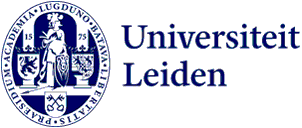
Egbert Fortuin appointed professor of Russian Language and Linguistics: 'I am back'
On 1 August, Egbert Fortuin has been appointed Professor of Russian Language and Linguistics. After a five-year term as vice-dean of the Faculty Board, he is eager to fully devote himself to the study programme. His appointment can therefore be summarised in three words: 'I am back'.

From 2015 to 2020, Fortuin was the vice-dean of the Faculty Board and portfolio holder bachelor education. Despite the busy position with little room for research, he managed to keep his knowledge up-to-date. 'The vice-deanship was difficult to combine with research, but I did it. Four days a week of managerial duties and one day a week for teaching and a very small amount of research. That is how I continued to teach. I also tried to use that time for research as much as possible, but I mainly used my weekends for that,' says Fortuin.
Bad image
According to Fortuin, his appointment comes at an important moment. 'I started studying Russian when the Berlin Wall had fallen. It was an exciting time for Russia back then, because it seemed to be developing into an open country with more relations to the West,' he recalls. 'At the time, Russia was the new promised land. That has changed a lot. Now, Russia mainly has an image of disinformation, manipulation and no democracy. The country gets negative coverage in the news, but it is very much in the picture,' says Fortuin. 'This awareness also exists in the Netherlands. Everyone from politics to business will say that we must keep an eye on Russia and that we should be knowledgeable about it. I think that the chair emphasises the importance of the Russian domain.'
Analysing Russian through and through
That is one of the reasons why Fortuin is pleased with his new appointment, in which he will focus on linguistics. 'I am delighted that my appointment enables us to strengthen modern Russian linguistics. You can study Russia from different perspectives, but the foundation is always a knowledge of the language. Before you get involved in politics, economics and history, you have to have a good grasp of it,' he explains. 'Of course learning a language is interesting, but thinking about the language is even more interesting - how is it constructed and what structures does it consist of? In my research, I also want to compare Russian with other languages in order to gain more knowledge about language in general. In order to do that, you have to analyse the language through and through. Only then can you begin making connections between Russian and other languages. We know a lot about Russian - but certainly not everything - so there is still a lot of research left to do.'
Symbolic boost
'It is also a symbolic boost for the study programme that I am back,' says Fortuin. More than in the past, he wants to be present at the programme. ‘Like me, the other linguist of the study programme, Jos Schaeken, who specialises in Old Slavic linguistics and cultural history, was often away from work. We have put a lot of time and love into the institute, the faculty and the university, but because of that we were often away from the study programme. It is a good thing that I have now been appointed Professor of Russian linguistics, because it will give the programme an extra impulse and modern Russian linguistics will have a face again.’
After studying Slavonic Languages and Cultures and Philosophy and obtaining his doctorate at the University of Amsterdam, Fortuin went to work for the Association of Universities in the Netherlands (VSNU). He was also a guest researcher and guest lecturer at the Slavonic Languages and Cultures programme at the University of Amsterdam. After this, he held the position of policy officer at Leiden University for a year. 'Soon after that, Jos Schaeken, professor of Slavic and Baltic languages and cultural history, approached me and asked me if I wanted to go back to academia,' says Fortuin. ‘I thought that was a good idea, and that is how I ended up at the Faculty of Humanities in Leiden.'
